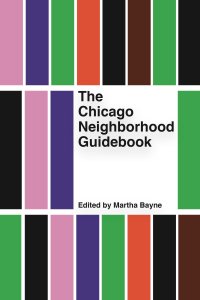“The Day I Left My Son in the Car.” So begins the first chapter of Kim Brooks’ memoir, Small Animals: Parenthood in the Age of Fear.
Brooks, a young mother with two small children, decides to leave her four-year-old son in the car while she runs into a store. A stranger videotapes the incident and reports Brooks to the police, putting the already anxious young mother into an emotional and spiritual tailspin.
 The author, a graduate of the prestigious Iowa Writers’ Workshop, stepped outside her usual genre to write an essay about the incident in Salon. What followed were millions of page views and scores of reader comments that ranged from empathetic to scornful. The viral nature of the article prompted Brooks, a Chicago-based writer, to delve more deeply into the topic, no doubt to go on a soul-searching mission about the incident itself but also to frame it within the context of the current parenting culture.
The author, a graduate of the prestigious Iowa Writers’ Workshop, stepped outside her usual genre to write an essay about the incident in Salon. What followed were millions of page views and scores of reader comments that ranged from empathetic to scornful. The viral nature of the article prompted Brooks, a Chicago-based writer, to delve more deeply into the topic, no doubt to go on a soul-searching mission about the incident itself but also to frame it within the context of the current parenting culture.
Gleaning from Brooks’ self-described childhood, it seems she and I both came of age before fears of tampered Halloween candy and Amber Alerts became commonplace. Brooks deftly explores the roots of these fears, tracing some to the “kidnapping panic of the 1980s,” the missing-children movement, and other movements that arose to “combat child abuse, crack cocaine, teen pregnancy, pedophilia, drunk driving, playground safety, sexual exploitation, and so on.”
Brooks also delves into the pressures parents face to do “whatever was necessary to instill in their children a fundamental sense of confidence and self-worth,” a trend that started sometime during the seventies and eighties. “From here,” writes the author, “the trends continue, and it’s not difficult to draw a line to the kinds of hyper-organized, overscheduled, micromanaged childhoods that have become so common.”
Small Animals is packed with research and in-depth interviews with parents and experts grappling with the same issues. Though Brooks managed to avoid jail time, she acknowledges that not all mothers have her resources of family and financial support. Some parents fall through the cracks of the legal system over similar incidents, she reports, losing their children to foster care for extended periods of time.
I picked up Small Animals after reading about it on “NPR’s Book Concierge’s Guide to 2018’s Great Reads.” Overall, I found it to be a thought-provoking, hard-to-put-down read. One glaring omission, however, is that the book barely mentions the person who caught the incident on video and reported Brooks to the police. How old was this person? Was it another parent? Male? Female? If there is any attempt to get their side of the story, I missed it. Even if Brooks were barred from mentioning her whistle-blower for legal reasons, the book would have been better served by a longer explanation as to why their identity, and story, are missing.
Though the issue of child safety offers little, if any, wiggle room for debate, I’d like to think that the age we’re living in, of constant surveillance, is colored by other trends that inform societal norms that often threaten our civil liberties. Where is the line between child safety and right to privacy? Brooks does touch on this issue, though with a flinched hand, choosing to focus instead on acknowledging and reducing her own anxieties about parenting, thereby encouraging others to do the same.
Small Animals is an excellent selection for any book club, as it provokes discussion across a wide swath of issues, from the realities of parenting to privacy, child safety, and pining for a past of unsupervised bike rides and trips to the local pool. It touches on a subject not commonly explored–fear-based parenting–in a humane, courageous way.


